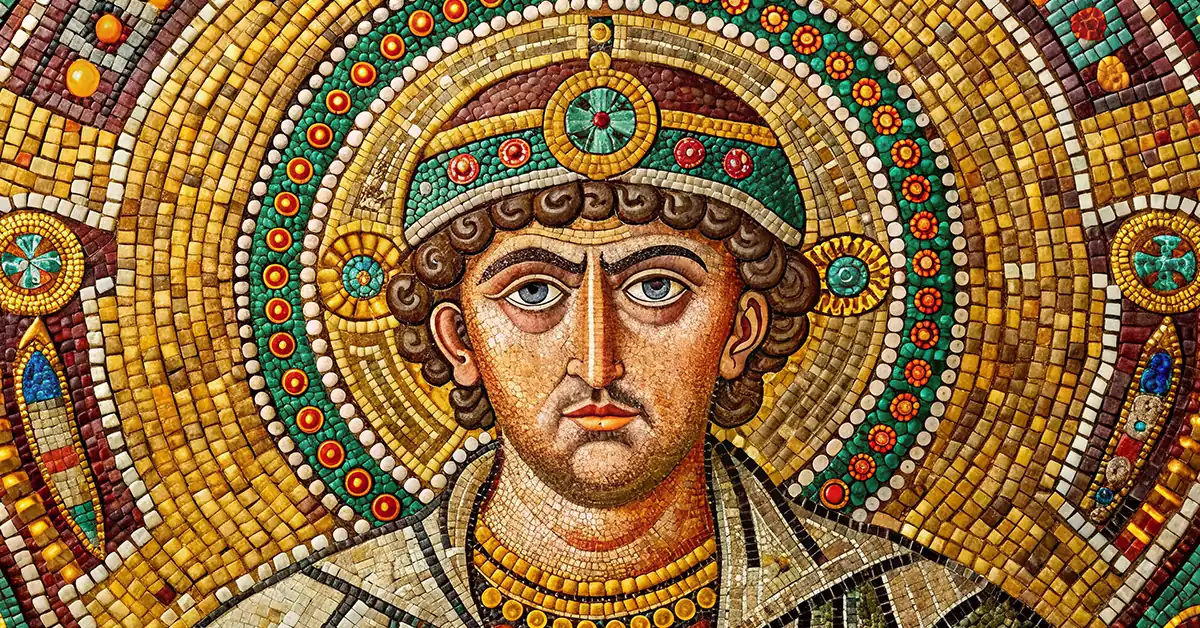Justinian’s Condemnation of Origen

Should We Trust Justinian’s Condemnation of Origen?
When people defend Eternal Conscious Torment (ECT) or Annihilationism, they often lean on the weight of “church tradition” and the authority of ecumenical councils. But history reveals something shocking: the very councils that condemned Origen and the hope of Universal Reconciliation were not free gatherings of Spirit-led believers. They were political theaters staged under the murderous tyranny of Emperor Justinian.
If your entire case rests on a verdict delivered in fear, censorship, and imperial coercion, you don’t have theology. You have empire.
Justinian: The Tyrant Behind the Curtain
Justinian I (527–565 AD) is remembered as a lawgiver and builder of Hagia Sophia, but he ruled church and state with an iron fist.
- He ordered the massacre of 30,000 people in Constantinople during the Nika Riots (Procopius, Wars, I.24.33–54).
- He used his Corpus Juris Civilis not only for civil order but also to criminalize heresy, apostasy, and dissenting religion (Codex Justinianus, 1.5.12–22).
- He censored and banned writings of opposing theologians, ordering them destroyed (Codex Justinianus, 1.1.3).
- He exiled bishops who resisted his decrees, including Severus of Antioch, Eutychius of Constantinople, and Peter of Apamea (Evagrius Scholasticus, Ecclesiastical History, IV.38; Liberatus of Carthage, Breviarium, 24).
This was not the Spirit of Christ. This was empire cloaked in religion.
The Condemnation of Origen Was Pre-Decided
The Fifth Ecumenical Council (553 AD) is often cited as the place where Origen’s teachings , including apokatastasis, the restoration of all , were condemned. But the outcome was determined long before the bishops ever gathered.
- Around 543 AD, Justinian issued an imperial edict against Origen’s teachings. Bishops were compelled to sign under threat of exile or confiscation (Liberatus, Breviarium, 23; Justinian’s Edict on Origen, preserved in Mansi, Sacrorum Conciliorum, IX, 537–544).
- When the council finally convened in 553, Pope Vigilius refused to attend and was essentially under house arrest in Constantinople (Liberatus, Breviarium, 24).
- Imperial officials oversaw the council’s proceedings, and the condemnation of Origen was reaffirmed , effectively rubber-stamping Justinian’s decree.
- Even after the council, Vigilius resisted endorsing it until Justinian retaliated by seizing church revenues and cutting communication, forcing his compliance in 554 (Procopius, Secret History, 9.22; J. Meyendorff, Imperial Unity and Christian Divisions, p. 343).
This wasn’t Spirit-led consensus. It was imperial coercion.
Censorship Was the Method, Fear Was the Policy
Theology under Justinian was not about persuasion. It was about survival.
- Disagree, and your writings were banned or burned (Codex Justinianus, 1.1.3).
- Resist, and you were exiled, like Eutychius of Constantinople (Evagrius, Ecclesiastical History, IV.38).
- Speak too boldly, and you risked ruin. Procopius writes: “Killing, in the opinion of Justinian, was hardly to be ranked as murder, if those who died did not share his beliefs” (Secret History, 18.1).
If the “truth” about eternal punishment has to be defended by censorship, threats, and imperial decrees, then it isn’t truth at all.
Why This Matters for the Debate on Salvation
Defenders of ECT and Annihilationism cling to the councils as if they were divinely sealed verdicts. But the historical reality is unavoidable:
- A council summoned by a tyrant cannot be trusted as the voice of God.
- A verdict pre-written by imperial edict is not theology; it’s politics.
- A consensus enforced through censorship and fear is not the guidance of the Holy Spirit; it’s the shadow of empire.
The condemnation of Origen and Universal Reconciliation tells us nothing about God’s truth. It tells us everything about Justinian’s lust for control.
The True Witness Is Scripture, Not Empire
Scripture says “love never fails” (1 Corinthians 13:8).
It says God “will reconcile all things” (Colossians 1:20).
It declares that Christ is “the Savior of all” (1 Timothy 4:10).
No imperial decree, no act of censorship, no forced council can silence that testimony.
Eternal Conscious Torment slanders God’s character. Annihilationism truncates His plan. Both are false gospels propped up by Rome and Byzantium. The true gospel , the best and greatest news , is that Christ will save all, eventually.
Conclusion
Trusting Justinian’s councils to define eternal truth is like trusting a confession signed under torture. If your argument against the restoration of all things rests on verdicts handed down in fear and censorship, then you don’t have theology , you have empire.
Christ’s kingdom is not built on forced creeds, but on grace, mercy, and the promise that “His mercy endures forever.” And unlike the decrees of tyrants, that mercy will never fail.
- 08/28/2025
- WRITE A COMMENT
Recent Posts
- The Eternal False Translation: How Aionios Was Corrupted Into Eternal
- The Rich Man and Lazarus
- Does Grace Last Forever?
- His Love Never Fails
- Love and Forgive Your Enemies
- His Mercy Endures Forever
- Scriptures That Teach Universal Reconciliation
- The Lesson of James, Peter and John
- Progressive Salvation is Biblical!
- The Gates Never Shut!


